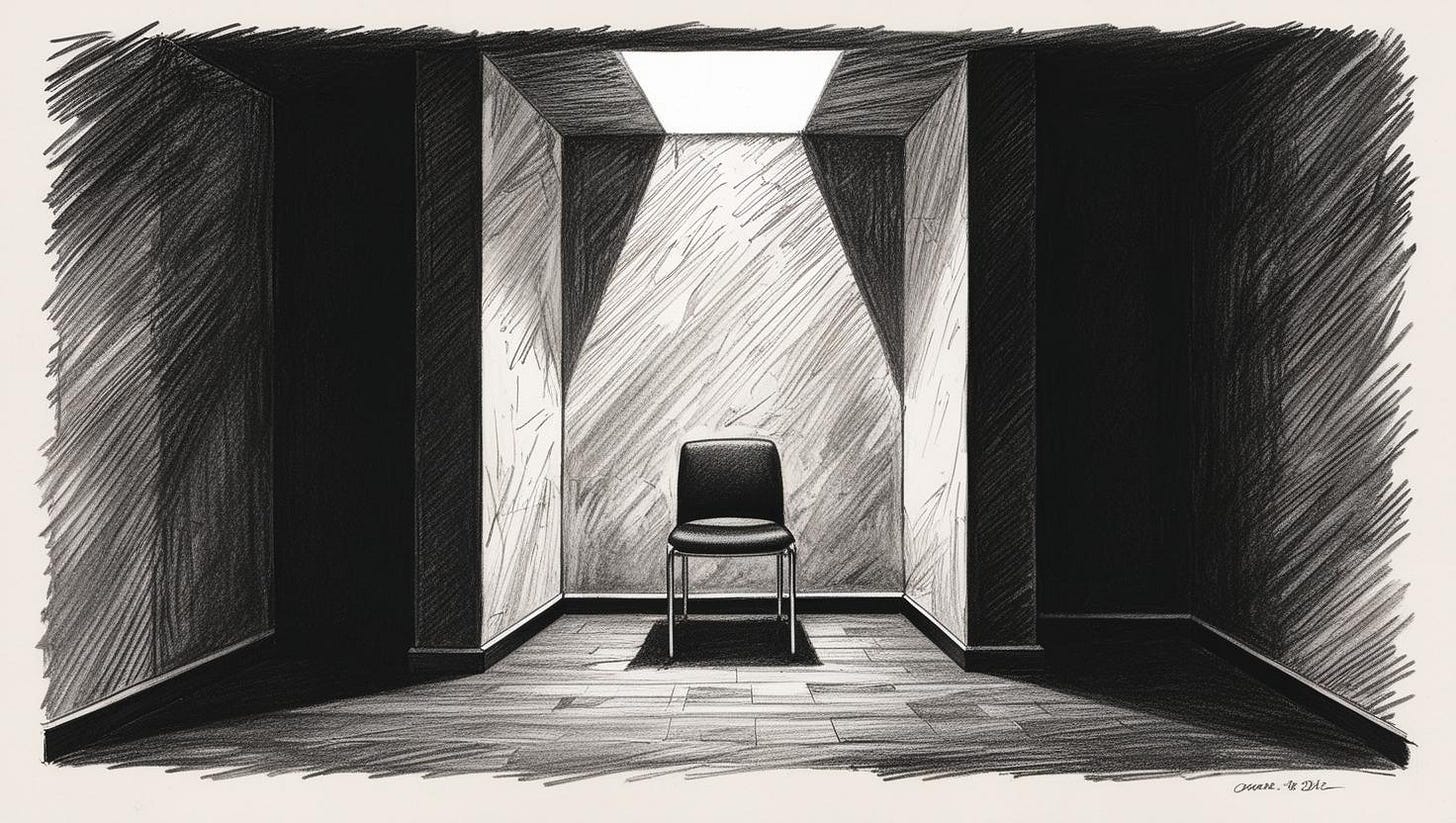Everyone In This Building Dies At The End
Writing Stories That See the Future—Prompts and Tips Inside
Prophecy has always fascinated me—not in the crystal-ball sense, but in the way we let what might happen shape how we see the world. Sometimes it’s obvious; other times, it’s subtle, like the feeling that something’s just slightly off. That’s the thread I pulled on when I wrote this week’s story.
It started with a simple idea: someone living in a high-rise apartment, and the word endeavor. I imagined the kind of person who peers through a peephole more often than they probably should. The end result was a narrator consumed by their own thoughts, where paranoia and possibility twist together until you can’t tell them apart.
What I love about writing prophetically is how it lets you play with tension. You’re not only predicting what happens—you’re creating the sense that something will, even if it’s all in your character’s head. In this story, the dread builds slowly, pulling you along with the narrator’s spiraling imagination. Horror? Maybe at first glance. But by the end, you might wonder if the scariest thing here isn’t the hallway outside—it’s the mind inside.
This week is all about writing with that edge: how to infuse your stories with a sense of inevitability and keep your readers questioning where reality begins and ends.
⚡The Story⚡
Harper will spend today speaking into the void again. Her latest endeavor, True Crimes of the Bay will consume her. She will adjust a pop filter. Her sentences will blur fact into fiction.
Later tonight, her thoughts will loop on repeat. The echo of #7B’s hammering — a killer hiding evidence? A shadowy figure shifting in the hallway. Was that a knife handle?
This case, this man, will pull at her focus like a noose. She will peer through a peephole. #7B’s door will stand ajar, revealing nothing. Yet nothing will reveal everything.
If she disappears, this will be the episode.
⚡The Basic Prompt⚡
Write a story where the narrator describes a day that hasn’t yet happened. How does the use of future tense shape the tone and tension?
Examples to Explore:
A first date that the narrator anticipates going horribly wrong.
“The waiter will spill wine on her dress. He’ll laugh nervously, and she’ll smile like it doesn’t bother her. But the night will end before dessert.”
A dystopian world where tomorrow promises disaster.
“The air will hang heavy with smoke. They will gather at the square, clutching their rations like lifelines. By nightfall, someone will vanish.”
A mundane day turned extraordinary by a single event.
“She will hit snooze three times before trudging to the kitchen. At 8:13 AM, the phone will ring, and nothing will ever be the same again.”
This exercise invites you to play with the tension between what’s expected and what’s unknown, giving your future tense writing an eerie or anticipatory edge.
Keep reading with a 7-day free trial
Subscribe to Flash Forward to keep reading this post and get 7 days of free access to the full post archives.






